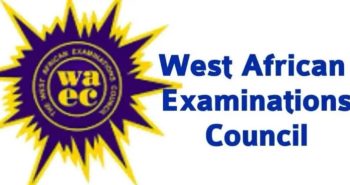Subscribe to the our newsletter to receive latest news straight to your inbox.
Why Nigerians should understand, forgive WAEC over 2025 results portal glitch
By Clifford Ejenavi When the West African Examinations Council (WAEC) experienced a technical glitch on its results portal for the 2025 WASSCE for School Candidates, it sparked anxiety among candidates, parents, and schools nationwide. Many logged in with excitement only to face delays, error messages, or incomplete result displays. While the frustration is understandable especially…


By Clifford Ejenavi
When the West African Examinations Council (WAEC) experienced a technical glitch on its results portal for the 2025 WASSCE for School Candidates, it sparked anxiety among candidates, parents, and schools nationwide. Many logged in with excitement only to face delays, error messages, or incomplete result displays.
While the frustration is understandable especially after months of anticipation, it is important to recognize that such disruptions were discrepancies discovered in the grading of serialized papers, not negligence or bad faith.
WAEC operates one of the largest examination databases in Africa, serving millions of candidates across multiple countries. The complexity of releasing results simultaneously to millions of candidates means that even robust systems can encounter temporary downtime. In this case, the Council has already acknowledged the issue, assured the public of data integrity, and worked to restore full access.
Rather than allow this glitch to undermine public confidence, Nigerians can see it as a reminder of the scale of WAEC’s task and the need to strengthen technical infrastructure for national examinations. Constructive feedback, patience, and trust will ensure smoother future releases.
Forgiveness in this instance is not about excusing shortcomings; it is about supporting an institution that has, for decades, upheld examination standards and safeguarded the aspirations of millions of students. By giving WAEC the benefit of the doubt, it will encourage a culture of transparency, accountability, and continuous improvement values essential to Nigeria’s educational future.
WAEC has several strengths that make it one of the most respected examination bodies in Nigeria. It operates across five West African countries (Nigeria, Ghana, Sierra Leone, Liberia, and The Gambia), which gives its certificates regional recognition and trust.
For standardized examination process, WAEC uses well-established, uniform syllabuses and marking schemes, ensuring fairness and consistency across member countries. The Council results are recognized by universities, polytechnics, and employers locally and internationally, making it a key qualification for higher education and career opportunities.
For the experience and institutional memory, having operated since 1952, WAEC has decades of expertise in managing large-scale examinations, syllabus development, and quality assurance. It conducts both the West African Senior School Certificate Examination (WASSCE) for School Candidates and for Private Candidates, giving students different opportunities to earn the qualification.
The Council’s adoption of online result checking, digital verification of certificates, and biometric data capturing to reduce examination malpractice and ensure technological improvements.
As for large candidate coverage, WAEC can administer exams to millions of candidates simultaneously, using a network of centers across urban and rural areas. With trong quality control and marking system, scripts are marked by trained examiners, often with double-marking and cross-checking to ensure accuracy and fairness.
Therefore, WAEC remains one of Nigeria’s most trusted testing bodies, backed by over 70 years of experience. The Council’s consistent standards and broad acceptance make it central to Nigeria’s education and manpower development.
Finally, the WAEC, Nigeria under the leadership of Dr. Amos Dangut as Head of National Office (HNO), has significantly reduced examination malpractice from 4.16 % down to just 0.8 %. The strategic direction he has charted, focused on digitization, transparency and inclusion, positions WAEC Nigeria on a promising path toward a more credible, accessible, and modern examination system.
Recommended Articles
-
Special Focus: Impact of NELFUND in Nigeria
1 month ago182 views -
5-year Finance Probe: WAEC react to House of Rep
1 year ago377 views -
Rivers State: Peter Obi caution Labour Party lawmakers against supporting injustice
6 months ago280 views -
LASU produces 10 first-class graduates at 2025 law school
3 months ago295 views -
Babatee admits sleeping with Lande’s wife, plead for forgiveness
7 months ago274 views









